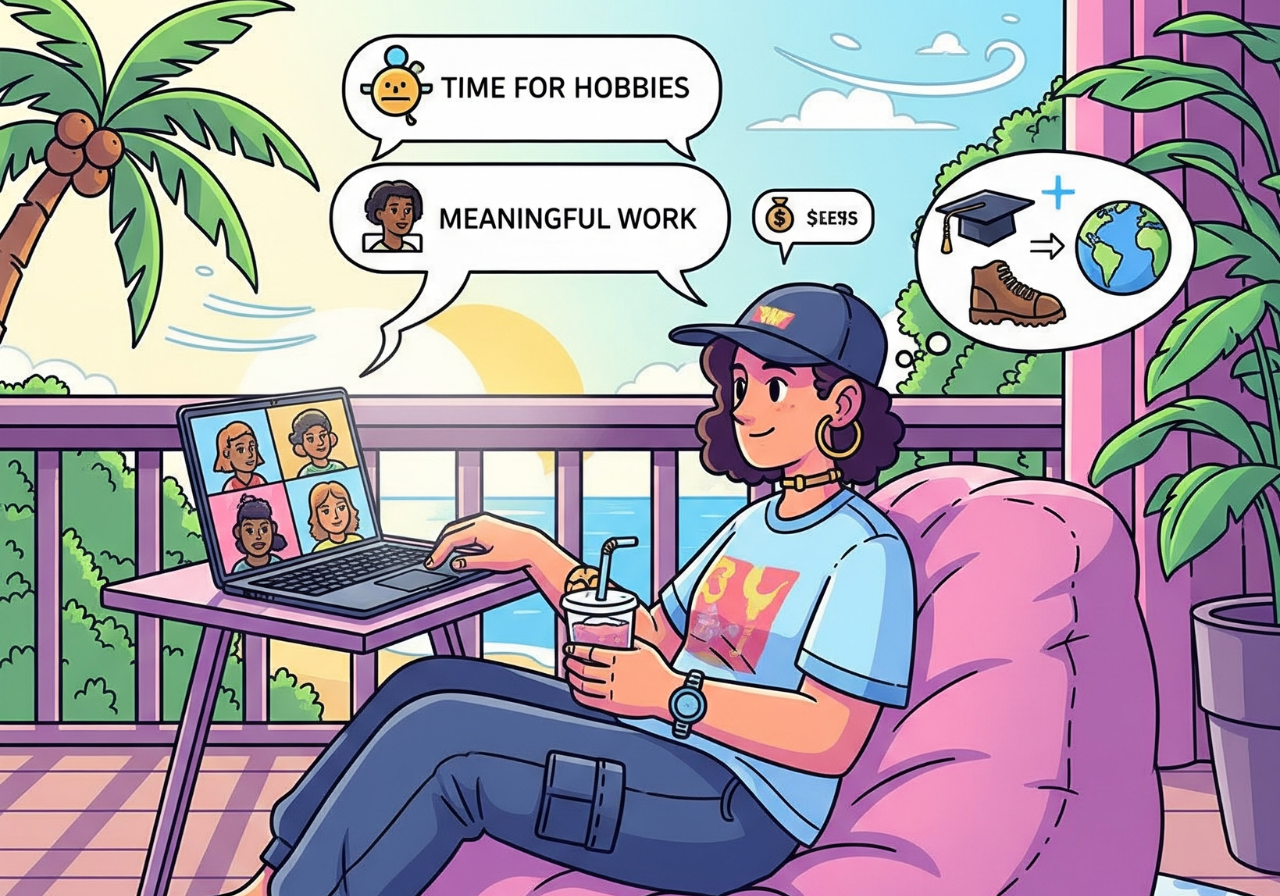The disagreement between generations isn’t a new phenomenon. But when it comes to careers, the gap between Gen Z and their parents is a bit too jarring. It’s not just a difference in choice of professions but a fundamental shift in what life and success are supposed to look like.
Our parents followed a tried-and-true path. They valued stability, pursued formal education, got a job in a respectable company and climbed the corporate ladder. They worked long hours, made sacrifices and saved steadily to earn a peaceful retirement, a path considered as responsible and safe.
But Gen Z doesn’t see stability the same way. What the older generation called “a secure job”, Gen Z often sees as corporate slavery. Today’s youth aren’t impressed by corner offices or fat paychecks if they come at the cost of their mental peace. They still want to earn well—but not if it means dreading every Monday or losing themselves to burnout.
According to a 2022 Deloitte survey, over 50% of Gen Zs don’t believe a traditional 9-to-5 job is necessary to be successful. This generation is rewriting the rules of success, showing that passion and profession no longer have to be separate paths. They believe in working to live, not living to work.
So why the dramatic shift?
The internet, many argue, is the catalyst—the moment everything changed for an entire generation. The digital age shattered the barriers our parents once faced. Where they were limited to local libraries and career fairs, Gen Z has the world in their palms.
A teenager in Dhaka can watch a startup founder in Silicon Valley talk about raising $10 million, or he can enroll in a free Ivy League course online about whatever excites him. Job applications aren’t limited to newspaper ads anymore. A 16-year-old can now apply for a remote job across the globe, armed with nothing but skills and Wi-Fi.
The world has become accessible—and with it, so have dreams that once felt impossible.
According to McKinsey, 58% of Gen Z workers would consider quitting a job that lacks remote flexibility. For them, being tied to one desk in one location feels like a cage.
But while this shift feels empowering to the youth, it also worries their parents.
To older generations, this mindset can seem reckless, naive and dangerously detached from reality. While they survived by playing it safe and steadily, they fear the new generation is chasing instant gratification. When Gen Z turns away from stability and tradition, it’s not just confusing, it’s scary for those who built their lives on those very principles.
And yet, this may simply be the natural cycle of progress. Every era redefines success. Every generation dreams differently, and as the world changes, so do its possibilities.
Still, one question remains, is this generational gap stalling a revolution, or is it safeguarding with the discipline and values that once worked?


